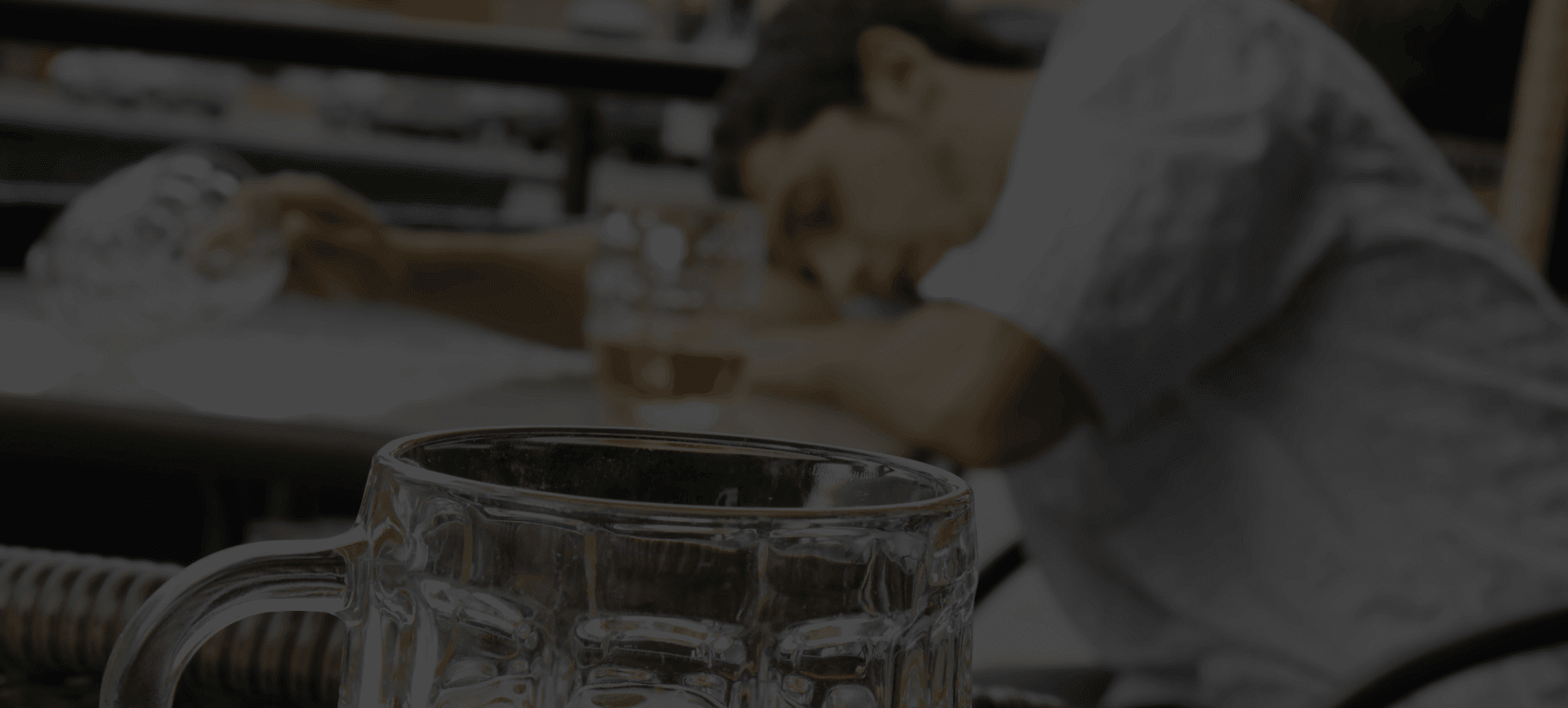
Andrew Coffey’s Hazing
Hazing, Abuse & Secrecy at Florida State University
Andrew Coffey was an outstanding young man with a bright future when he walked onto the campus of Florida State University as a 20-year-old junior engineering major. Within months of his first day at FSU he would pass away following a night of fraternity hazing. It was every parent’s worst nightmare.
In the fall of 2017, Andrew began pledging for Pi Kappa Phi, one of the hardest-partying fraternities on campus. As a pledge, he would be assigned a “Big Brother,” a senior fraternity member who would oversee his recruitment and evaluate him as a potential member. In reality, a Big Brother is a key part of the fraternity’s method of psychological and physical abuse and coercion designed to train pledges into compliance with the organization’s secretive culture, much of which involves alcohol.
On November 2, 2017, Andrew was invited to an off-campus party organized by the officers and leading members of Pi Kappa Phi. It was “Big Brother Night,” a nationwide event common to Greek life. These events, tragically, come with a tradition shared by chapters nationwide: the “family bottle.” Early in the night, Andrew’s ‘big brother’ handed him a full handle of Wild Turkey—101-proof bourbon—and instructed him to finish the bottle by the end of the night.
The tradition was simple: “We did it when we were pledges, so you have to do it too,”
“Died Alone in a Room Full of People”
From what investigators have gathered, Andrew had so much to drink that sometime after midnight, he could no longer stand up on his own, so the ‘brothers’ put him on a couch to “sleep it off.” It was there that Andrew—surrounded by roughly 100 ‘brothers’ carousing and playing pool all around him—would lay unconscious from acute alcohol poisoning.
Andrew’s mother, Sandy, said it most clearly in a public letter: Andrew “died alone in a room full of people.”
At around 3 AM, fraternity members tried to rouse Andrew but were unsuccessful. When it became clear that he was very intoxicated and in serious trouble, not a single fraternity “brother” called 911. Instead, they delayed—discussing the pros and cons of calling the hospital, whether they would be arrested or expelled, and how they could call for help without facing any consequences. Andrew was left alone on the couch for a long time before anyone called for help and, by then, it was too late. Only two people rendered aid. No one considered the possibility that Andrew might be saved if they called sooner.
Below, First Coast News shares information about that night, including the 911 call.
When police began investigating what happened, they collided with the reality of fraternity culture: very few cooperated. Among those who refused to speak to police were 19 of 41 pledges, 22 of 38 fraternity members, and 7 of 9 executive council members. Apart from one fraternity member, those who did speak painted a hazy, incomplete account that failed to accept or assign responsibility for Andrew’s death. That would only come later when the prosecutor turned up the heat.
Fighting for the Coffey Family
Tom and Sandy Coffey, Andrew’s parents, called Stewart Tilghman Fox Bianchi & Cain, P.A. for help. As the firm that represented the Meredith family after Chad Meredith’s hazing-related death in 2001, they asked us to serve as the family’s voice in civil, criminal, and public arenas. The Coffeys and our firm were determined to expose the truth about what happened to Andrew and to hold those responsible accountable—including fraternity leaders who weren’t present for Andrew’s death but played a role in planning the dangerous and illegal event.
In 2018, STFBC filed suit against nine fraternity members, the two people who rented the off-campus house where the hazing event took place, the chapter’s advisor, and the Pi Kappa Phi national office. The 50-page lawsuit we filed established, once and for all, that planning hazing activity is just as bad as participating in the hazing and makes those who plan these events criminally liable as well.
Andrew’s death sparked national media interest about hazing and the state of fraternity and sorority culture and brought attention to the fact that since the year 2000, 70 fraternity pledges have died in the U.S. as a result of fraternity hazing. It is a mind-boggling number. Having seen enough, the parents of hazing victims banded together and founded Parents United to Stop Hazing, or PUSH to try and speak with one voice about how to put an end to the hazing madness.
These efforts are ongoing.
Andrew’s story was covered by outlets all over the country:
- Coffey family attorney speaks
- 5 plead guilty in FSU hazing death of student from South Florida
- Five enter plea agreements in Coffey hazing death
- Appeals court reinstates felony hazing charges in Andrew Coffey death
- Florida Supreme Court rejects appeals in FSU hazing death case
- Grand jury report into death of Andrew Coffey skewers FSU’s fraternity culture
- Gov. DeSantis signs ‘Andrew’s Law’, enacting tougher hazing measures
- FSU fraternity pledge died ‘alone in a room full of people’ at party
- Grand jury finds enough evidence for charges in Florida State pledge death
Criminal Prosecution Against Pi Kappa Phi
A few weeks after Andrew’s death, a grand jury in Tallahassee, Florida convened to determine whether to bring criminal charges against those responsible. Given how few people agreed to be interviewed and the vagueness of the little testimony that there was, the grand jury felt that Pi Kappa Phi members had rehearsed their answers to protect themselves—in essence, conspiring to conceal the truth. Shortly thereafter, charges were brought against 10 fraternity members, including the president, who organized the party but was not present when it took place. Five were charged with misdemeanors, and the other five were charged with felony hazing under the Chad Meredith Act that David Bianchi from our firm authored many years ago.
Just a few months later, those charged with misdemeanors pled guilty. Four of them were sentenced to 60 days in jail; the sole defendant who cooperated with investigators received half that.
Below is footage of the defendants entering guilty pleas:
In the aftermath of the guilty pleas, David Bianchi compared the behavior of the fraternity members to the behavior of sexual assault perpetrators who attempt to evade responsibility through victim-blaming—in this case, blaming Andrew Coffey for causing his own death by drinking the alcohol, despite the very real and powerful coercive forces brought to bear against him through peer pressure and ridicule if he did not comply.
Felony Charges Face Multiple Obstacles
While the misdemeanor charges were quickly resolved, the third-degree felony charges faced an uphill battle. A Florida judge dismissed the felony charges with a ruling that would have threatened the ability to hold perpetrators accountable for felony hazing ever again. Thankfully, in January 2020, a ruling from the First District Court of Appeals reversed the dismissal, fulfilling one of the family’s strongest hopes: it established the precedent that people who organize hazing activity can and should be held criminally liable, even if they were not present for the actual hazing.
By the time the defendants tried to take the case to the Florida Supreme Court, only three were left. Then, in August 2020, the Florida Supreme Court declined to hear the case. Prosecution proceeded, and by June 2021, the final two holdouts—one of which was the fraternity’s president—pled guilty to felony hazing.
“We Needed to Make Our Good Law Even Better”
With the civil suit settled and the criminal charges having resulted in guilty pleas, our firm geared up for a new battle: strengthening our state’s anti-hazing statute. Standing shoulder to shoulder with Mr. and Mrs. Coffey, Attorneys David Bianchi and Michael Levine drafted new legislation inspired by Andrew’s passing. As David explained to the Florida legislature in his testimony in support of their proposal, “This bill will make our state’s good law even better.” The legislature agreed and passed it unanimously.
“The universities can only do so much, but when the national fraternities know these dangerous, illegal traditions are taking place and they turn a blind eye, they’re as guilty as anybody else because they are expecting the tradition to continue. I’m going to attack this problem from the top down and the bottom up."
— Attorney David W. Bianchi
The new law clarified existing language that made it easier to prosecute people who had caused serious or fatal injuries through hazing. But there were two brand-new measures included legislation:
- It was made explicit that fraternity and sorority leaders who knowingly plan events where hazing takes place would be criminally liable under Florida’s anti-hazing law.
- It grants immunity from hazing prosecution to the first person who calls 911 on behalf of a hazing victim and to whomever administers aid while waiting for emergency services to arrive, provided they cooperate with investigators when they arrive.
Lawmakers called it “Andrew’s Law.”
The Coffey family, David Bianchi, and Michael Levine lobbied the Florida legislature to pass the bill, pushing it through committees and into the main chambers in emotional public hearings.
Meanwhile, anti-hazing advocates got behind the bill, calling its measures “innovative” and “groundbreaking.” Never had there been a hazing law that attempted to break down the wall of silence protecting fraternity activity. By incentivizing calling emergency services and cooperation with the police, we could prevent what happened to Andrew from happening to anyone else. Governor DeSantis signed the bill into law in June 2019. It took effect on October 1 of that year, which our firm marked with an anti-hazing presentation tour at campuses all over Florida.
Since then, Andrew’s Law has become a landmark in the fight against hazing.
Other hazing incidents nationwide have led to bills inspired by our work in Tallahassee—especially as other “Big Brother” nights and other “family bottle” events have led to more senseless loss of life.


Hundreds of Millions Won
We have a reputation for getting results. Our personal injury law firm has successfully gone toe-to-toe against the largest companies in the country and has been able to recover maximum financial compensation for our clients. As a result of our success, diligence, and experience, our trial attorneys have been recognized and awarded by numerous organizations throughout the nation. We have consistently obtained extraordinary results for our clients year after year in state after state. We can arrange for you to speak directly to our previous clients
-
$650 MILLION
RICO
-
$17.3 MILLION
Wrongful Death
-
$16.5 MILLION
Brain Injury
-
$15.5 MILLION
RICO
-
$15 MILLION
Medical Malpractice
-
$15 MILLION
Birth Injury
-
$15 MILLION
Truck Accident
-
$15 MILLION
Liquor Liability
-
$14.5 MILLION
Pedestrian Accident
-
$14 MILLION
Hazing
-
$13.5 MILLION
Birth Injury
-
$12 MILLION
Defective Product
-
$12 MILLION
Wrongful Death
-
$11 MILLION
Birth Injury
-
$11 MILLION
Personal Injury
-
$10.5 MILLION
RICO
-
$10 MILLION
RICO
-
$10 MILLION
Medical Malpractice
-
$10 MILLION
Medical Malpractice
-
$8 MILLION
Truck Accident
-
$8 MILLION
Cruise Ship Injury
-
$8 MILLION
Negligent Security
-
$8 MILLION
Medical Malpractice
-
$7.5 MILLION
Sexual Assault
-
$7 MILLION
Defective Product

Why Choose Us?
-
ResultsHundreds of Millions Recovered
-
CommitmentLimited Caseloads Equals Unlimited Focus
-
Integrity
150 Years of Combined Experience